What Does a Music Promoter Do?

In the music industry, where melodies interweave with the threads of creativity and passion, lies a crucial yet often underappreciated figure: the music promoter.
Quick Summary
In the music industry, music promoters serve as the vital link between artists and audiences, orchestrating live events that captivate fans. They bring a unique blend of creativity and business acumen to the table, ensuring shows are both memorable and financially viable. By nurturing relationships with artists, venue owners, and fans, promoters play a crucial role in enhancing the live music scene, advocating for talent, and creating unforgettable experiences that resonate throughout the indust
These unsung heroes breathe life into the live music scene, acting as the vital bridge between artists and audiences, dreams and reality. The role of promoters extends far beyond the shadows of the stage; they are the heartbeat of the live music industry, ensuring that the symphony of live performances reaches every corner of the local music scene and beyond.
This blog post highlights these pivotal players, illuminating their essential contributions and their dynamic roles in orchestrating live music events that resonate with music fans and echo through the halls of music venues worldwide.
The Role of a Music Promoter
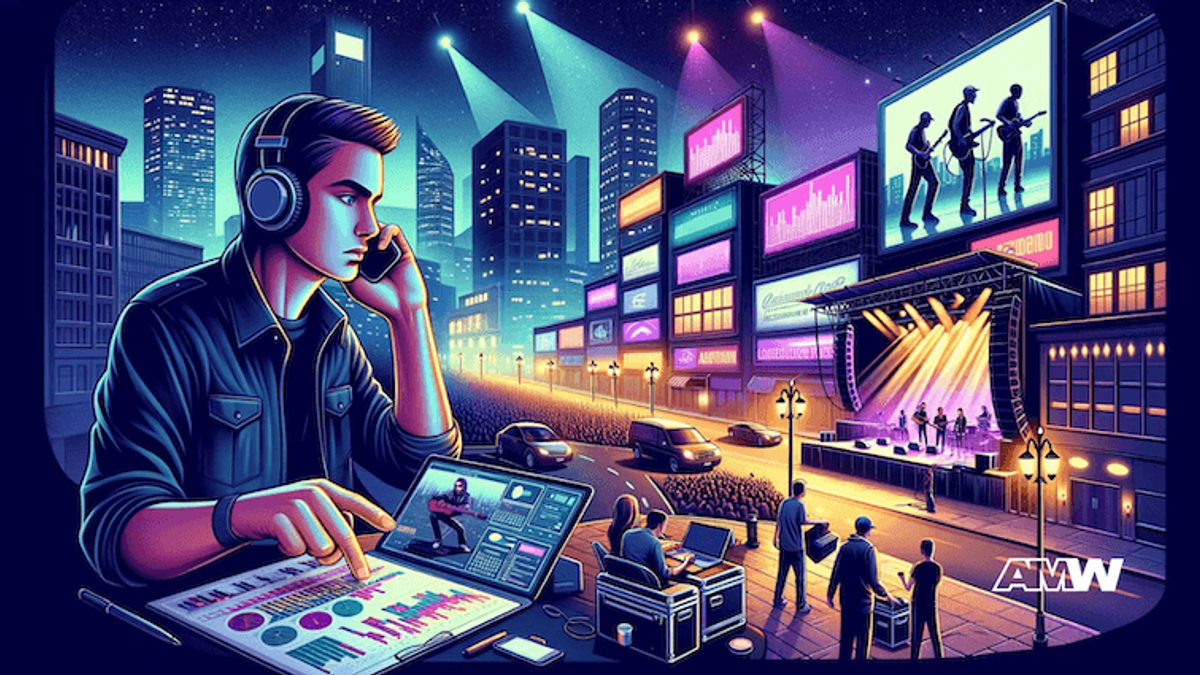
At its core, the role of a music promoter is as diverse as the genres of music they help flourish. Music promoters, whether concert promoters working for significant tour promoters or independent promoters nurturing the growth of the local music scene, share a common goal: to bring live music to the ears of eager audiences. These professionals are tasked with organizing events that captivate and connect, creating unforgettable experiences for established artists and emerging talent.
Concert promotion involves a delicate balance of logistical acumen and creative vision. From the initial stages of negotiating contracts with venue managers to the final moments of counting how many tickets were sold, the concert promoter's job is steeped in both the excitement of live music and the realities of the business side of the music industry.
Promoters must have an in-depth knowledge of the market, understand the needs of the local music scene, the preferences of music fans, and the capabilities of music venues to host events that resonate with their target audience.
Promoting events is not just about selling tickets; it's about storytelling, creating a narrative that draws potential fans into a shared experience. This involves creating promotional materials that capture the essence of the event, leveraging social media platforms to engage with a wider audience, and working closely with radio stations, press, and artist managers to ensure maximum exposure.
For many promoters, the goal is to sell as many tickets as possible, not merely to cover expenses but to ensure that artists, venue owners, and promoters can thrive and continue contributing to the vibrant tapestry of the live music industry.
The financial risk involved in concert promotion is significant, with many promoters operating on the edge between monumental success and challenging setbacks. Whether deciding on a flat fee for artists or navigating the complexities of ticket sales, promoters must have a keen sense of business to ensure that each event is a cultural success and a financial one.
This often involves working with booking agents to find new talent and secure gig opportunities, coordinating with venue owners to manage the logistics of live shows, and engaging in a constant dialogue with artists to keep everyone on the same page.
In essence, the music promoter's role is a testament to their passion for live music, commitment to artists and fans, and unwavering belief in the power of live events to inspire, connect, and entertain. Through their efforts, music promoters play a key role in ensuring the vibrancy of the live music scene, championing the talents of many bands and artists, and making the dream of performing live a reality for countless musicians across the globe.
The Financial Tune: Understanding Compensation and Costs in the music industry
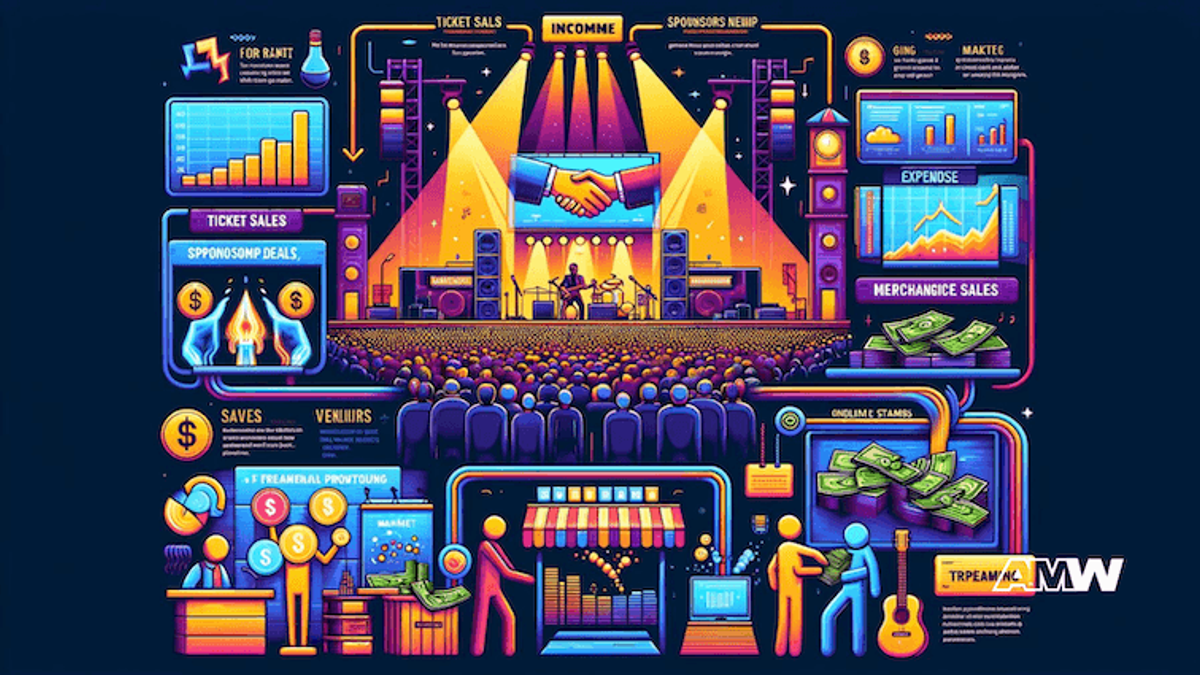
Navigating the financial landscape of the live music industry requires a symphony of strategic planning and acute business acumen, particularly for the promoter.
The essence of concert promotion is not just about creating memorable live events but also ensuring they are financially viable for all parties involved: the artists, venues, and promoters. Understanding the compensation and costs associated with live events is crucial for music promoters, as it directly impacts their ability to sustain and grow within the music industry.
Music promoters often work with various compensation models, ranging from guaranteed fees to share deals where profits from ticket sales are split among the promoter, the venue, and the artists.
The choice of model depends on different factors, including the established reputation of the artists, the expected draw of potential fans, and the financial risk the promoter is willing to undertake. The financial risk is a significant consideration for many promoters, particularly independent promoters organizing events for local music scenes.
They must expertly navigate ticket sales, venue costs, and artist fees to ensure the event does not just break even but is profitable enough to invest in future live music events.
Promoting live music events also involves upfront costs, such as creating promotional materials, securing a strong social media presence, and engaging in concert promotion through radio stations and press releases. The ability of promoters to cover these expenses and still make money from live shows is a testament to their skill in identifying their target audience and effectively selling tickets.
This financial juggling act is a crucial part of the promoter's job, requiring an in-depth knowledge of the live music industry, including which venues are most suitable for specific genres and how many tickets need to be sold to cover expenses and ensure a successful event.
Harmonizing Relationships: Promoters and Artists
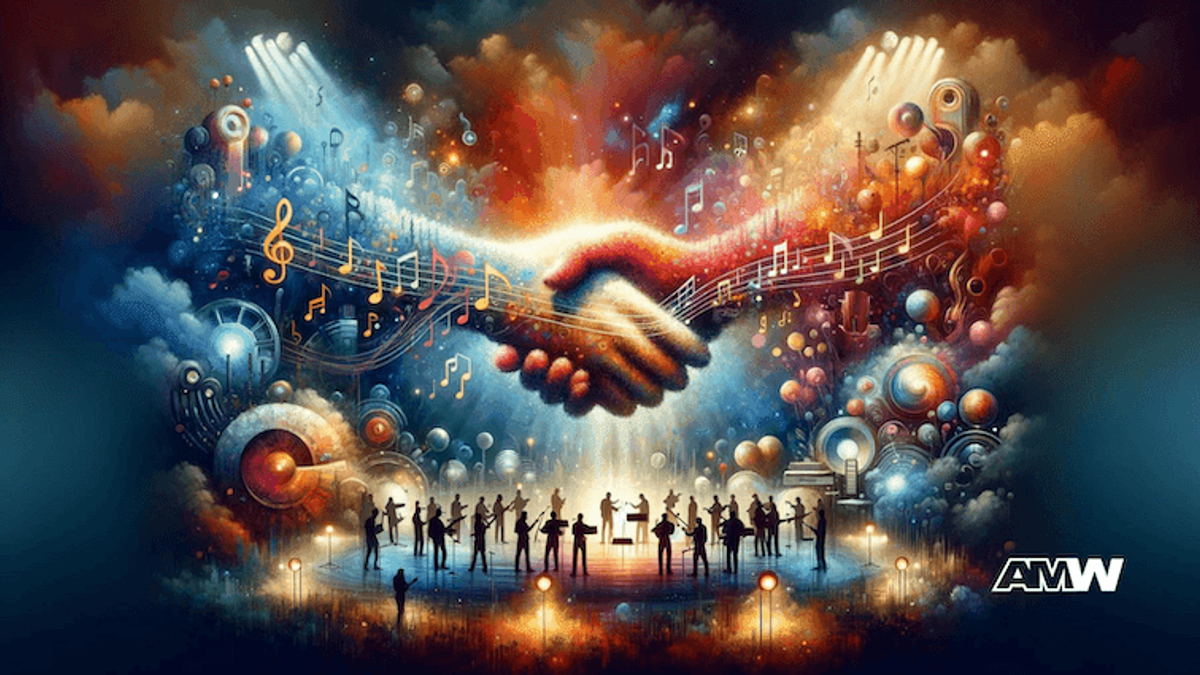
The Relationship between music promoters and artists is akin to a well-composed duet, where communication and mutual respect are key to creating a harmonious partnership. Music promoters play a pivotal role in the careers of emerging talent and established artists, providing them with the platform and audience to showcase their music.
This partnership extends beyond the logistics of organizing events; it's about building a lasting relationship that benefits both the artist and the promoter over time.
Finding a music promoter who understands their music, fan base, and career aspirations is invaluable for artists. Promoters with a strong network and understanding of the local music scene can connect artists with gigs that align with their goals and vision. These opportunities range from playing gigs at smaller venues to opening for bigger acts, each step orchestrated by the promoter to help artists grow their fan base and gain exposure.
Promoters work closely with artists and their management teams to negotiate contracts that reflect the interests of all parties. This includes discussing the financial aspects, such as how many tickets need to be sold for the artist to receive a guaranteed fee, and the creative aspects, like the event's theme and promotional materials. A promoter-artist solid relationship relies on clear communication to ensure mutual understanding of the live event's goals.
Moreover, music promoters often advocate for the artists they work with, championing their music to venue owners, booking agents, and record labels. This advocacy is crucial to the promoter's job, as it helps secure future gig opportunities and opens doors for artists within the larger music industry. By fostering these relationships, promoters contribute to the artists' success and play a key role in enriching the live music scene with new and diverse talent.
Music promoters and artists have a foundational relationship in the live music industry, built on trust, collaboration, and a shared passion for bringing music to fans. Through their efforts, music promoters and artists create live events that resonate with audiences, further cementing promoters' crucial role in the vibrant world of music.
Skills That Hit the Right Note
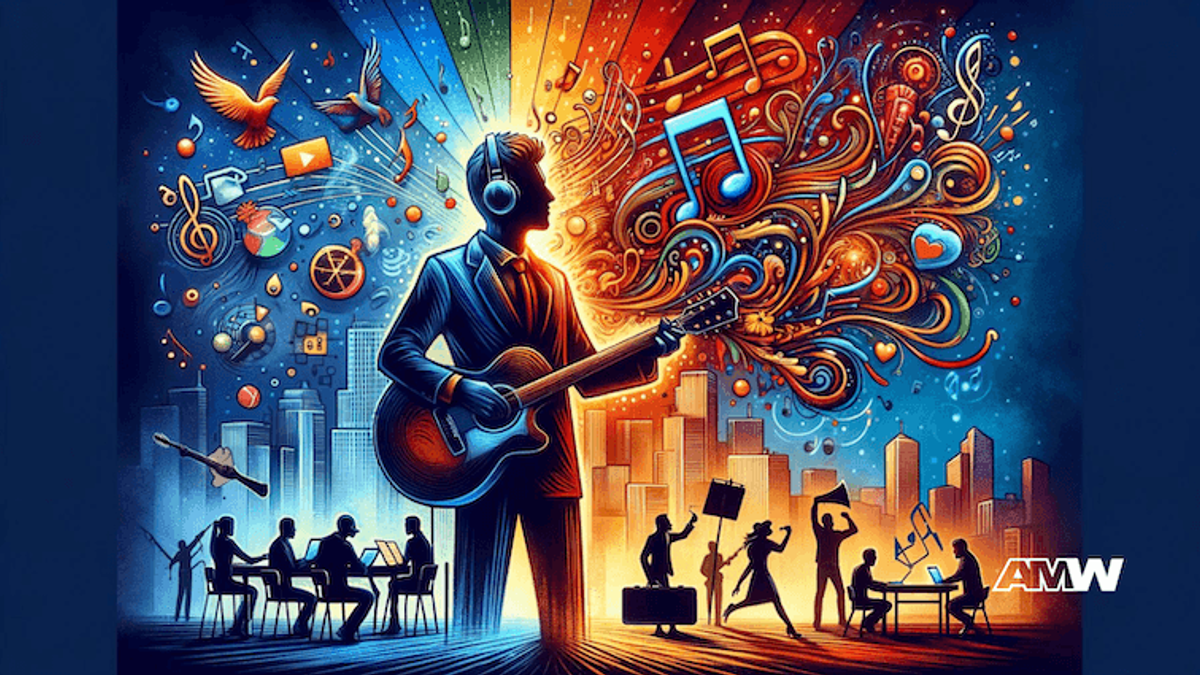
The music industry's live sector is full of complexities, and a thriving music promoter must possess unique skills to navigate it. At the heart of every successful concert promoter lies a deep passion for music and a set of professional skills that enable them to bring live events to fruition.
Strategic Planning and Organization
The ability to organize events, manage schedules, and coordinate with various stakeholders is paramount. Music promoters must juggle multiple tasks, from booking venues to scheduling load-in times, ensuring everything runs smoothly on the event day.
Marketing and Promotional Acumen
Creating promotional materials that capture the essence of the live event and effectively reach the target audience is crucial. A strong social presence and traditional marketing strategies, like press releases and collaborations with radio stations, help sell tickets and generate buzz around the event.
Negotiation and Financial Management
Music promoters must negotiate contracts with artists, venue managers, and other promoters to ensure fair terms and profitability. Understanding the financial risk of each event, managing budgets, and strategizing ticket sales are key to a promoter's success.
Networking and Relationship Building
Building and maintaining relationships with artists, booking agents, record labels, and venue owners is essential. A promoter's network can significantly impact their ability to book bands, find new talent, and secure prime venues for live shows.
Adaptability and Problem-Solving
The live music industry is ever-changing, and promoters must adapt to new trends, audience preferences, and unexpected challenges. The ability to think on your feet and solve problems quickly is critical when organizing live music events.
Launching Your Music Promotion Career
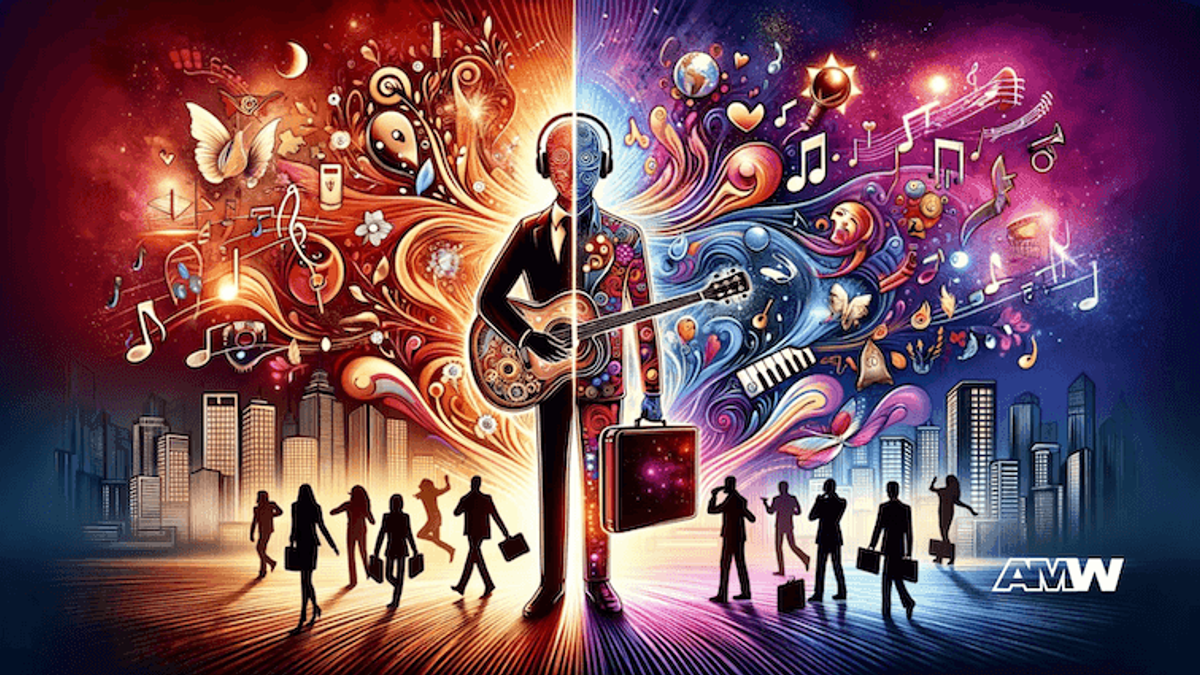
Embarking on a career in music promotion is an exciting journey that begins with a passion for music and a determination to contribute to the live scene. Whether you want to promote small local events or organize large-scale concerts, the following steps can help you pave the way for a successful career in music promotion.
Educate Yourself
While formal business or event management education is beneficial, there are other paths to becoming a music promoter. Many successful promoters have learned the ropes through experience and self-education, immersing themselves in the music industry to gain an in-depth knowledge of its workings.
Gain Experience
Start by volunteering or interning with concert promoters, music venues, or festivals. This hands-on experience is invaluable, providing insights into the day-to-day challenges of organizing live events and building a network of industry contacts.
Build Your Network
Connect with local music promoters, venue owners, artists, and booking agents. Attend live music events, industry conferences, and networking meetups to meet potential collaborators and learn from their experiences.
Start Small
Organize smaller events in local venues or work with independent artists to build their fan base. These experiences will help you learn how to promote events, manage financial risks, and negotiate contracts effectively.
Establish Your Brand
As you gain experience, develop a strong brand identity for yourself or your promotion company. Highlight your successes, the specific genres you specialize in, and the unique value you bring to artists and the local music scene.
Leverage Social Media
Use social platforms to promote your events, engage with music fans, and showcase your work. Online presence helps reach and attract more artists and venues.
Launching a career as a promoter requires dedication, hard work, and a genuine love for live music. By honing your skills, gaining experience, and building strong industry relationships, you can significantly impact the music industry, helping artists share their music with the world and enriching the cultural landscape with unforgettable live events.
FAQ - Promoter Music
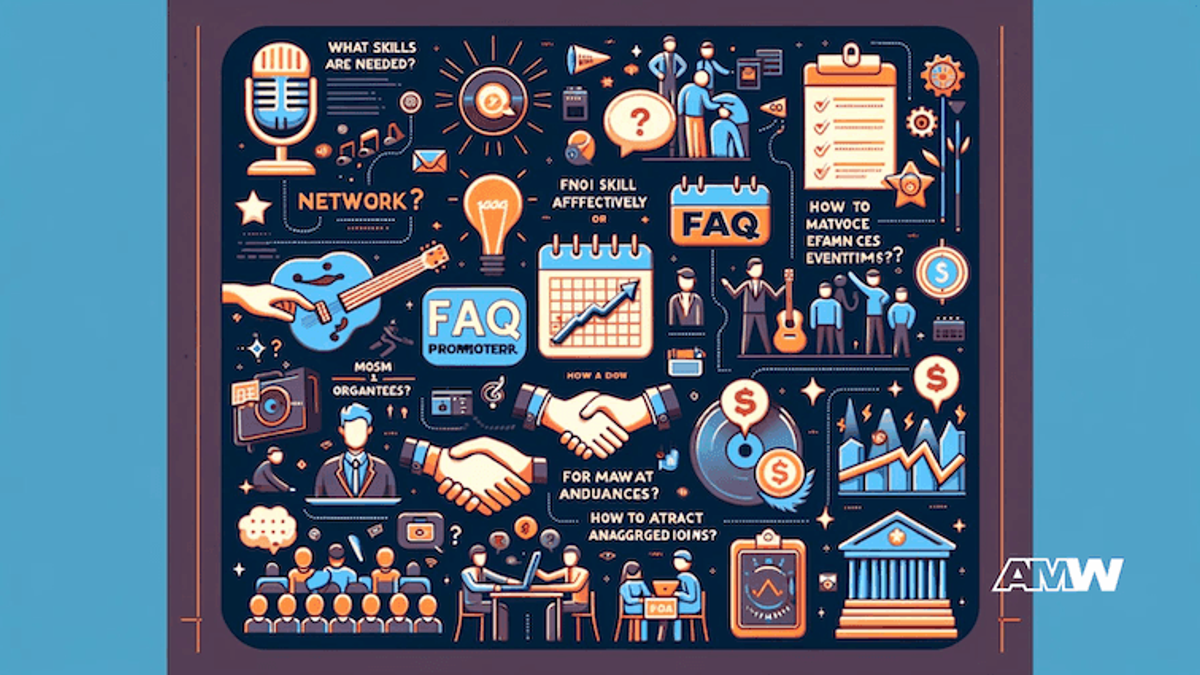
What does a promoter do for an artist?
A music promoter plays a crucial role in an artist's career by organizing live music events that enhance their visibility, help grow their fan base, and provide opportunities to perform live. Promoters work closely with artists and their management teams to create events that align with their music style and career goals, handling everything from venue booking to concert promotion and ticket sales.
Do music promoters get paid, and how?
Music promoters are typically compensated through a combination of flat fees, percentages of ticket sales, or a share of event profits. The specific compensation structure can vary based on the agreement between the promoter, the venue, and the artist. Concert promotion requires financial management to cover expenses and generate profit.
What is the difference between a producer and a promoter?
A producer focuses on the creative and technical aspects of creating music, working with artists in the studio to craft their sound. In contrast, a promoter is involved in the business side of music, specifically organizing, marketing, and hosting live music events. While producers help create the music, promoters help bring that music to live audiences.
What skills do you need to be a music promoter?
Successful music promoters possess a mix of marketing, organizational, negotiation, and financial management skills. They also need a strong understanding of the music industry, including knowledge of specific genres, the local music scene, and how to engage with music fans through promotional materials and social media. Relationship-building skills are crucial for working with artists, venue managers, booking agents, and other promoters.
How do I find a music promoter?
For artists looking to find a music promoter, networking within the local music scene, attending industry conferences, and leveraging social media platforms are effective strategies. Additionally, reaching out to established artists for recommendations or searching online for promoters with experience in specific music genres can help connect you with the right promoter for your needs.
Conclusion
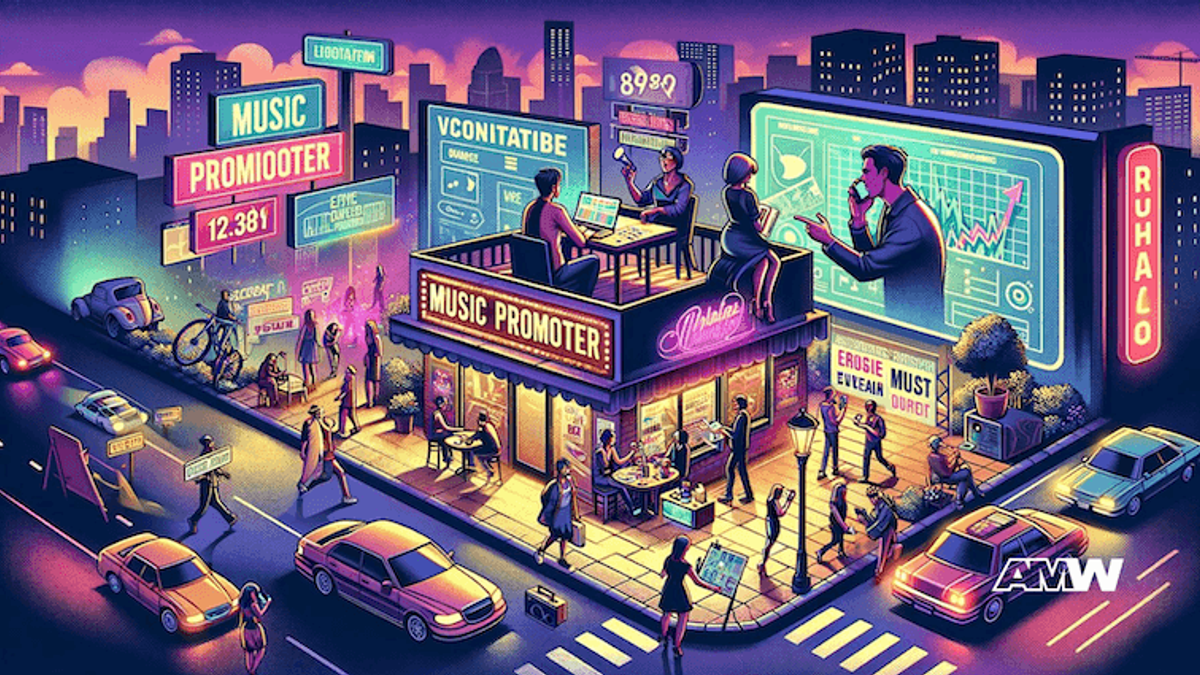
Embarking on a career as a music promoter or seeking to collaborate with one offers a unique opportunity to play a role in the live music industry. Music promoters provide platforms for artists to connect with their fans and fuel the growth of the music scene through live events.
Whether you're an independent artist eager to expand your fan base, an established artist planning a tour, or an aspiring promoter ready to make your mark, understanding the multifaceted role of music promoters is essential.
A music promoter's journey is filled with challenges and rewards, from the thrill of a sold-out show to the satisfaction of seeing an artist's fan base grow. By mastering the art of concert promotion, building strong relationships within the music industry, and staying attuned to the tastes and trends of music fans, promoters can create unforgettable live music experiences that resonate with audiences and contribute to the vibrancy of the local music scene.
In the end, the success of live music events hinges on the collaboration between promoters, artists, venue owners, and fans. Together, they create the magical moments that define the live music experience, ensuring that the rhythm of live music continues to beat strongly in the heart of the music industry.
Whether you're just starting or looking to elevate your career, remember that every concert, every ticket sold, and every fan gained is a step towards enriching the world with the universal language of music.
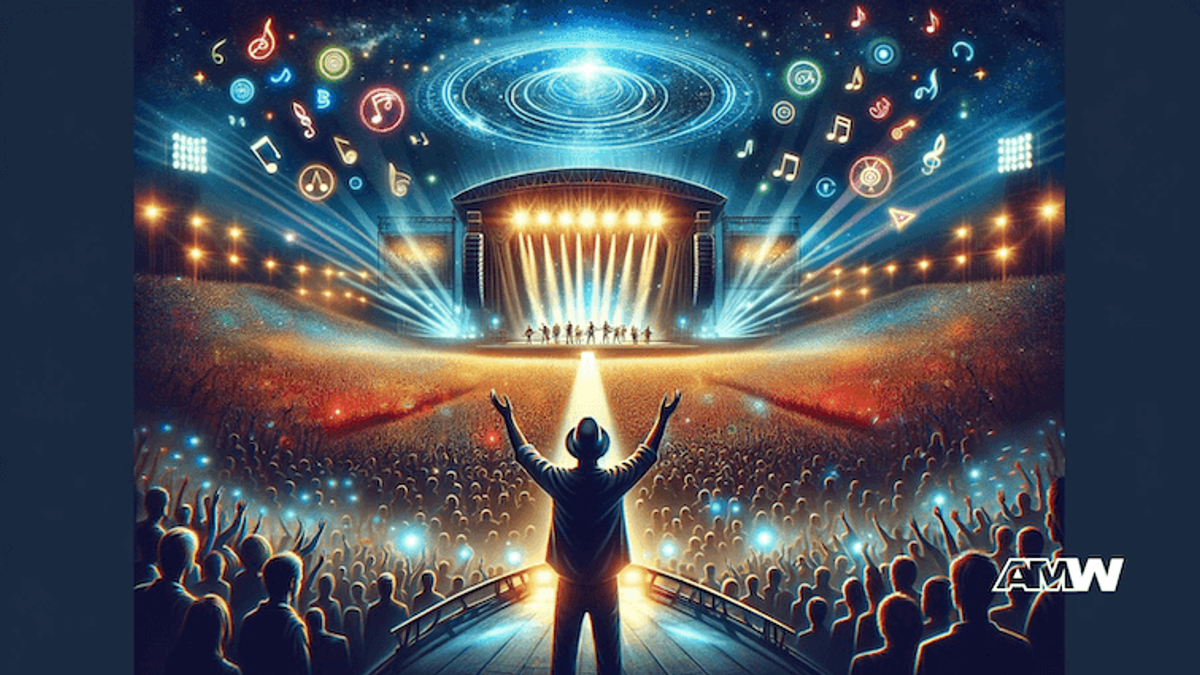
Related Resources
Calculators
Pricing Guides
Key Terms
The deliberate sequencing of release platforms (theatrical, streaming, VOD) to maximize revenue across all distribution channels.
Creative ProducerA producer focused on story, talent, and creative elements rather than primarily on financing and business aspects.
Stem DistributionReleasing individual component tracks of a song separately, enabling remixing, sync licensing, and fan creativity.
Music Sync AgentRepresentative who secures placement of music in film, TV, advertising, and games.
Social AudioShort-form music content created for social media platforms.
Related Articles

Sponsor Music: How to get Sponsorship in the Music Industry
In the music industry, finding the right support to advance a music career can make a significant difference. One of the ways to potentially grow as an artist is through music sponsorship. Whether

The Role of a Music Consultant in Building a Music Career
Navigating the music industry can be overwhelming for new and even experienced musicians. While talent is essential, making the right decisions can equally be critical to success. That's where a m

How to Become an Event Planner: Mastering the Art of Creating Unforgettable Experiences
Introduction to Event Planning as a Rewarding Career Choice Embarking on a journey to become an event planner immerses you in a dynamic world of creativity and coordination. It's an arena where you
